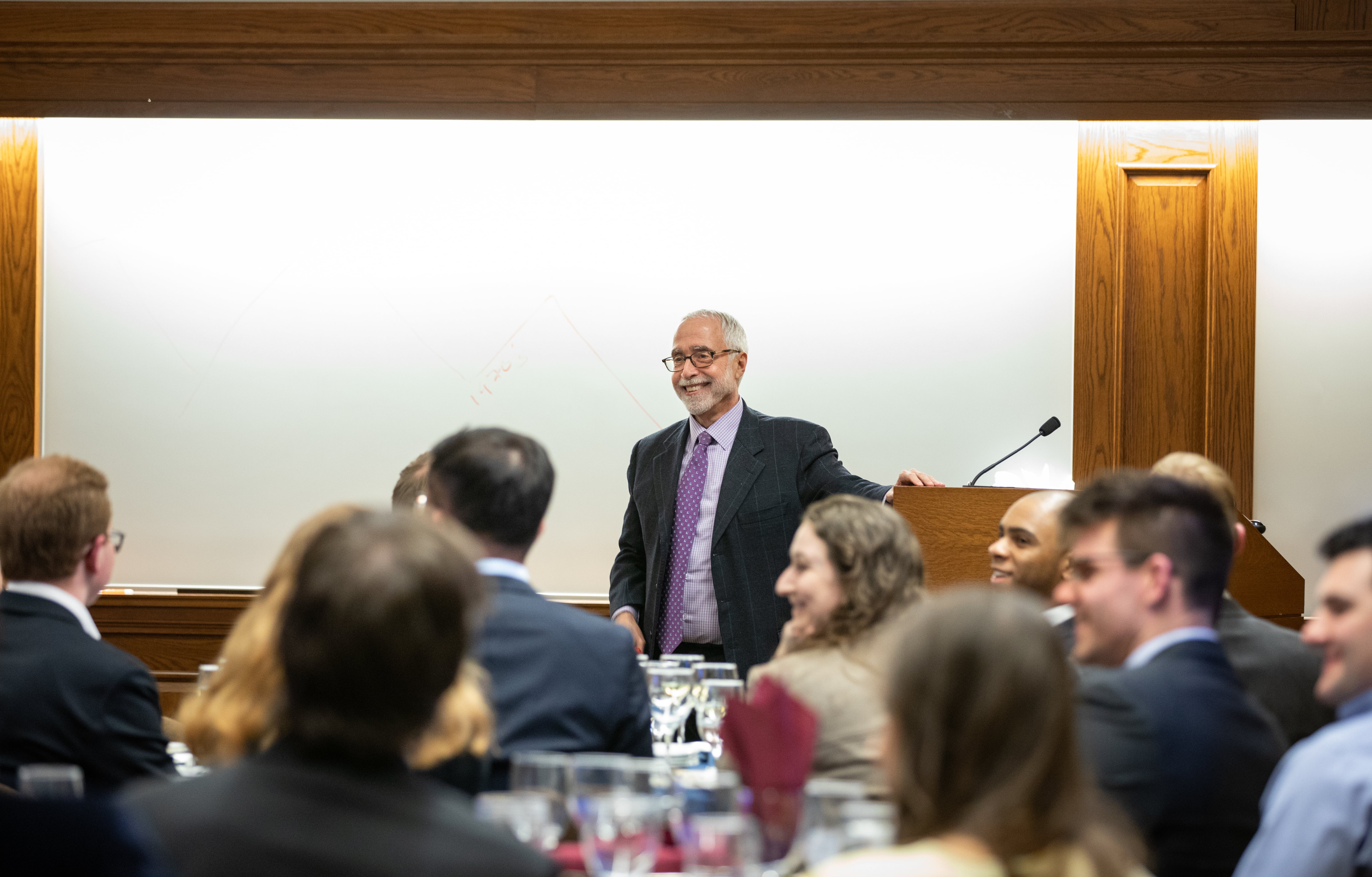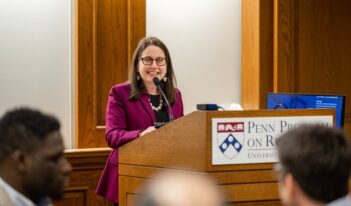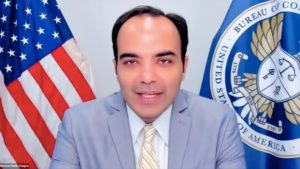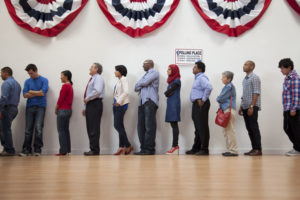
In his 2019 Distinguished Regulation Lecture at Penn Law, Paul C. Light shares a message of hope about public service.
When the federal government shut down just before Christmas in 2018, it did not reopen until January 25, 2019—the longest government shutdown in U.S. history. During this time, nine executive departments with about 800,000 employees—and many more contractors and grantees—either ceased operations or curtailed them, leading to employee furloughs or work without pay.
For 35 days, the nation watched as report after report appeared in the media about stalled food safety inspections, threats to beneficiaries of the Supplemental Nutrition Assistance Program, and even struggling restaurants in Utah. Finally, after flights were grounded into LaGuardia Airport in New York City due to the shortfall in air control staff, President Trump agreed to sign the appropriations legislation needed to reopen government.
According to some estimates, the shutdown cost the U.S. economy $11 billion. At the same time, Americans’ trust in the federal government sank to a new low.
Could this unhappy and unnecessary national ordeal have any silver lining?
Paul C. Light, the Paulette Goddard Professor of Public Service at New York University’s Wagner Graduate School of Public Service, thinks it might.
Delivering the Penn Program on Regulation’s Distinguished Regulation Lecture earlier this year, Light said he thinks that the 2018-2019 federal government shutdown could provide a much-needed impetus for reforms to the federal civil service system. Light argues that the post-shutdown fallout presents the United States with a “once-in-a-generation chance” to reform the federal service.
The Regulatory Reviewis honored to feature in this series the lecture that Light delivered at the University of Pennsylvania Law School. His remarks are followed by responses from four other leading experts in public administration: John J. DiIulio, Jr. of the University of Pennsylvania; Philip K. Howard of Common Good and Covington and Burling LLP; Sara Mogulescu of the Volcker Alliance; and Russell Wheeler of Brookings Institution.
Silver Linings Shutdown
September 9, 2019 | Paul C. Light, New York University Wagner Graduate School of Public Service
Americans learned a great deal about bitter partisanship during the shutdown, but they also received a real-time introduction to the state of the federal service. The overall takeaway was a warning about the need to address what former Federal Reserve Board Chairman Paul A. Volcker called the “quiet crisis” in public service. There is one potential silver lining to the long shutdown at the start of 2019: it cast a spotlight on a once-in-a-generation chance to remake the federal service.
Let Light Shine on Government’s True Size
September 10, 2019 | John J. DiIulio, Jr., University of Pennsylvania
We ought to pay special attention to Light’s lessons about the “blended workforce” and turn “a once-in-a-generation chance to remake the federal service” to good and lasting account. To that end, a Light-directed national commission could help document the true size of the federal government, develop data systems to describe and assess the blended workforce, and devise measures intended to revitalize and reform the federal civil service system.
Silver Linings Action Plan
September 11, 2019 | Sara Mogulescu, The Volcker Alliance
The government must find fresh, innovative strategies for recruiting our nation’s deep bench of talent. Encouraging our most thoughtful and accomplished young people to heed the call of public service requires hard work, creative solutions, and purposeful collaboration between people from all sectors of our society.
Reboot Washington to Restore Honor to Public Service
September 12, 2019 | Philip K. Howard, Common Good and Covington and Burling LLP
Americans agree that government is broken, just as others see that the civil service system is broken. The two are inextricably linked. It is not possible to fix government without remaking public service, and vice-versa. What is missing in both is a framework that honors human responsibility.
How the Government Shutdown Turned Into a Judicial Slowdown
September 16 2019 | Russell Wheeler, Brookings Institution
Light’s “silver lining” might illuminate the need for attention to the deferred maintenance of the federal service generally. It is harder to say whether it can pierce the persistent dark cloud of deferred judicial system maintenance. Several problems for the judiciary are likely to intensify if periodic funding lapses become part of regular government operations.



